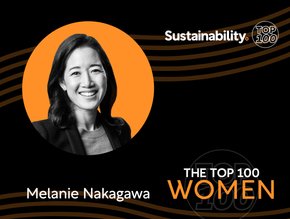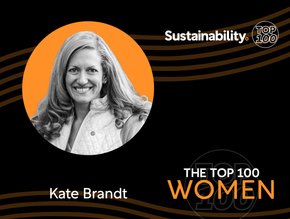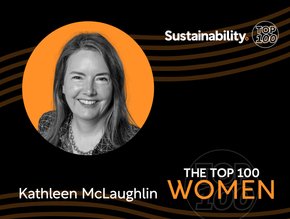NAVEX Global on the results of worldwide ESG survey

Environment, Social and Governance (ESG) programmes are frameworks that businesses work towards, supporting the relevant issues that arise within these topics ─ for example, running diversity workshops, greenhouse gas (GHG) reduction, and anti-corruption.
NAVEX Global offers risk and compliance management software and services. The company helps customers manage risks, handle regulatory requirements, build ESG programmes and enhance their ethical workplace values, in addition to offering resources and courses to help employees understand the importance of ESG.
Recently, NAVEX Global carried out an Environmental, Social and Governance survey globally to discover the generational and regional differences in attitudes to ESG. Public and Private companies from across France, Germany, the United Kingdom and the United States were invited to participate, and over 1,250 management and senior-level executives responded to the survey.
Karen Alonardo is the vice president of ESG Solutions at NAVEX Global. Karen spoke with Sustainability to discuss the survey results, and although parts of the data were surprising, other aspects were not. Yet, all of the results point in the direction of positive ESG momentum. First, she discussed what ESG means to her.

Karen Alonardo
“ESG has emerged as an investor view of sustainability - which has been around for a while. It's led to more businesses quantifying risk and performance in these areas. For years, people have said: “If my investor is telling me to do this, I had better do it!” and this now applies to sustainability and ESG. Investors cannot make decisions based on stories or what it is you ‘say’ you’re doing. They can only make decisions based on fact and what they can see. ESG policies are that step that we needed, where investors are putting pressure on businesses to do better and realise the benefits of concentrating efforts in these areas.”
Within the Social aspect of ESG, diversity and inclusion are getting a lot of attention right now. Why is it important for employers to value diversity and inclusion in their workforce?
“The value that comes from an employer supporting diversity and inclusion is one of trust and acceptance. If the employees see an employer who cares about these issues, they know they are accepted regardless of their gender, skin colour, religion or country of origin. The relationship between the employee and employer is key to attracting and retaining good quality talent.”
Generationally, millennial leaders are more favourable towards ESG than their Generation X or baby boomer counterparts. For companies that did not already have ESG programmes in place, 64% of millennials (24-39-year-olds) believed they should. Only 55% of Gen X (40-55-year-olds) and a mere 38% of older leaders (56+) agreed.
In addition, 55% of Millennials said environmental factors are most important to their company’s reputation. 44% of Gen X respondents and 48% of Baby Boomers felt the same way.
“Back in 2006”, says Karen, “I remember thinking: “I cannot wait for the young people to come in and work for us,” because they grew up learning about recycling and have been educated about climate change at school. My generation didn’t. We had one catchy TV ad: “Give a hoot, don’t pollute”. But for Millennials, it is a serious consideration. They will take a job because one company is greener than another company. They are thinking about their own kid’s futures.”
Out of the three components in ESG, Governance is often viewed as the least important aspect.
“We get told that when you think about the governance aspect, that they are “Over there somewhere...”. Governance has always been seen as a very separate entity to the social, sustainability and environment side of ESG, but it is a really important component,” explains Karen. “The Governance side can have a huge impact. Is your board being ethical? Is there bribery or corruption? There is an education piece that still needs to be done on how the G fits in with the E and S of ESG.”
Of those questioned, publicly traded companies seemed to favour ESG initiatives more so than those which were private. 88% of publicly traded companies had such programmes in place, compared to 79% of venture and private equity-backed companies and only 67% of privately-owned companies.
“Big companies are thinking “I need to implement [more ESG] because of my customers.” Asset managers are asking private companies to report back to them, so if a big business is asking me, as a small private business that supplies to them, to generate ESG reports - I need to do that as they are my customers. Publicly, trading companies are asking their vendors to report their ESG initiatives to them. I think it is balancing out, and many are taking care of it on their own. I think the next step is looking at how we simplify the process.”
Waving the ESG flag
From the countries asked if they worked for companies with formal ESG reporting practices, respondents from France and Germany hit 86%. 82% of UK respondents and only 74% of US respondents said the same. However, 67% of the US and the UK respondents said their companies would increase their focus on ESG factors in 2021, whilst 62% of French and 58% of German companies said the same.
“[Laughs] I think in the USA… we are so different - size-wise and in complexity. With a smaller landmass and natural resources scarcity in UK/Europe, it meant a focus on ESG was needed sooner, but now everyone is feeling the threat. What’s great with the UK and Europe taking a stand with ESG is [that] others are going to watch and learn, which I think we are starting to see. We need a leader. If it’s the EU today, maybe next, it will be the USA!”
NAVEX Global was founded in Portland, Oregon, USA, in 1997, and the company has some environmental goals.
“NAVEX Global’s environmental impact is not as large an issue as it would be for companies in other sectors, but it’s still very important to us. We are currently setting goals not only in environmental but in all aspects of ESG, including people, community, governance and customer service. We are also planning for a public-facing ESG report in the near future.”
The United Nations Sustainability Goals are a benchmark for many: from Goal 5 ‘Gender Equality’ to Goal 13 ‘Climate Action’ and Goal 11 ‘Sustainable Cities and Communities’. These are wide-ranging goals, but are they actually achievable?
“Absolutely,” says Karen. “I think it helps to give goals to companies that are thinking: “What do we need to do, where do we start?”. It can feel like such a huge task to take on ESG commitments, but with these guidelines, companies can say: “I can take three of those goals and make them a reality.” It gives them something to shoot for! Environmental news can be really disturbing and overwhelming, but being able to follow these guidelines means we are working towards making things better. That’s how I motivate and move myself forward.”
Moving forward into a post-pandemic world
After over a year of working from home and the possibility of hybrid work for many, ESG will evolve with the new normal.
“I don’t know what it’s going to look like, or when that will be”, Karen says. “We are still going through a transition. Hopefully, we can utilise technology to allow us to continue working in a smarter way, especially when it comes to our work-life balance. I’d like to think we will continue to be more caring of one another. Hopefully, more people will also be questioning where our products come from, having faced issues in the usual supply and demand during the pandemic. I am learning a lot about dependency. How do we all run as one happy planet? But it has been nice not commuting! People have had time to check up on their personal lives. I think I have seen that from a lot of people. It has also given nature a break and a chance to reset itself, which I have seen as a silver lining.”






